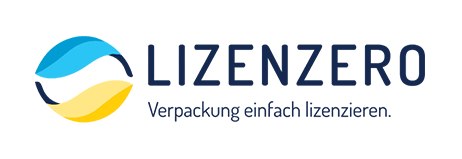
[Partner article]
Digital Platforms – Overview of Indirect Tax Liabilities
Content:
- Important types of online businesses
- Platform economy
- Digital platforms
- Tax Liabilities of Digital Marketplaces
- United States - Marketplace facilitator tax liability
- VAT in the Digital Age - Platform Economy
The continuous rise of e-commerce and the introduction of new business models opened various possibilities for creating entirely new economic operators competing with traditional businesses for profit. The unseen technological advancements in retail and commerce, in general, gave rise to new types of businesses that can operate entirely online without needing a physical presence in countries where they are customers.
This remarkable change in the retail industry, the shift from offline to online channels, wouldn’t be possible without establishing new groups of businesses that will fulfill customers' purchasing needs.
The contemporary e-commerce landscape wouldn’t be possible without e-retailers, online merchants, digital platforms, and marketplaces. These legal or natural persons, through many different types of communication with customers, are the first point of contact when making online purchases.
It should be noted that the last COVID-19 pandemic accelerated the growth of online commerce from different angles. These dark times “permitted” online businesses to prosper in revenue and focus on making their operations more efficient, international, less bureaucratic, and more scalable.
Important types of online businesses
Different groups of online businesses establish national and international e-commerce space. There are different online business models based on the local business ecosystem, accepted international standards, local regulations, and connected sources of information. This view doesn’t per se stay within the understanding of the operative part of the e-business, but it also assumes how it connects with its users and customers.
In the most accepted view, there are four main groups of e-business models, depending on more than a few relevant factors:
E-retailers:
Represent retailers that operate through their website, offering goods and services to their customers(they can function independently through their website or connected website). This does not mean that their supplies can’t also be advertised through platforms.
Online merchants:
Suppliers of goods and services that offer their supplies thanks to the facilitation services of digital platforms or marketplaces. They are not “owners” of websites or web portals. They are not acting independently. There is a necessity of an intermediation service to connect the provider and customer.
Digital Platform:
In many situations, the interpretation of the business model defined as a digital platform and the marketplace is synonymous. That could arise from the similar business concept these two models describe or the relatively similar time from which the term started circulating in commerce.
However, it does not always have the same connotation. The Digital Platform business concept covers more than facilitation services for connecting suppliers and customers through digital venues. The focus of the platform business operations covers or can cover facilitation services for connecting merchants and customers.
Still, it attributes high importance to the interactions between all users operating through the platform. It goes beyond paying particular attention to advertising services. Platforms enable their value by putting extra effort into user interactions and content sharing.
Digital Marketplace:
The main element in the value enablement for the marketplace is facilitating services for connecting suppliers and customers based on transactional linkage. The facilitation fees or commission that the marketplace operator earns for “making” that supply happen is the primary revenue stream for the marketplace. For the platform, it goes beyond that. It can cover additional, e.g., subscription fees, advertising fees, etc.
Platform economy
The platform economy is the term used to describe a multi-sided transaction model with at least three independent parties involved. One of the digital platform's crucial roles is connecting providers and customers. The online merchant offers goods or services, time or task-based relevant activities, assets, and resources to the customer using the platform network to reach the users. The platform often takes the provider's commission or facilitation fee to reimburse the underlying service.
In most cases, the provider receives a monetary payment from the customer, but sometimes, this isn’t the case, and the merchant receives a non-monetary exchange.
Digital platforms
Different types and subtypes of digital platforms operate on the global scene. There are digital platforms that work exclusively on a national basis, facilitating the distribution of domestic supplies.
Various surveys on the number of digital platforms operating cross-border and facilitating cross-border transactions show that around 1,500 digital platforms have a place of residence in the EU. That number is significantly higher if we add up the foreign non-EU platforms that have a branch or establishment in the EU.
The magnitude and importance of digital platforms can be touched by looking at the following numbers:
- The revenue of digital merchants operating in the platform economy at the EU level is around EUR 190 - 200 billion yearly
- The income of digital platform operators at the EU level is around EUR 60 - 70 billion yearly
Tax Liabilities of Digital Marketplaces
Introduction of deemed supplier model
The European Union E-Commerce package from July 2021 introduced important changes for businesses established in the EU or with customers there. Import One-Stop-Shop, a new simplified concept for reporting obligations, was established and became available for online merchants and platforms.
For permitted businesses, this reporting scheme became a significant administrative advantage for collecting output tax liabilities aligned with the provisions established via this legal instrument. The compliance with indirect tax liabilities became significantly more straightforward.
The legal institute of deemed suppliers for digital marketplaces introduced the possibility that when specific conditions are met, the tax liabilities of the online merchant should be shifted to the facilitation marketplace. In these conditions, the operating platform operator should consider all VAT-related liabilities and perform according to the EU legislation.
The digital marketplace is treated as a deemed supplier for the following types of supplies where mandatory conditions are met:
- Distance sales of Low-value goods(goods in consignment with the intrinsic value of less than EUR 150) imported from third countries or third territories by the underlying supplier(EU/non-EU established)
- Domestic and intra-community distance supply of goods where the underlying supplier is non-EU established, no matter the value of goods
United States - Marketplace facilitator tax liability
The landmark Supreme Court decision on South Dakota vs. Wayfair Inc. introduced the legal statute called economic nexus, by which the retailers don’t need to have a physical presence within the state to have obligations under sales tax legislation. The court decision dramatically changed the game's rules for remote sellers and, later on, digital marketplaces as well.
The economic nexus established a mandate for retailers that when the state-based economic threshold is reached, the out-of-state seller becomes liable for sales tax collection and remittance in that specific state.
Most of these remote sellers are small online merchants that often didn’t reach the established economic thresholds defined on a state-by-state basis. So, the revenue departments were continuously losing significant amounts of revenue. Overwhelmed with the situation, the states decided to expand the economic threshold responsibility to digital marketplaces that facilitate sales of online merchants.
When the digital marketplace reaches the economic threshold defined state-by-state, it automatically becomes the bearer of responsibility for collecting and remitting sales tax.
The marketplace facilitator rules introduced significant responsibilities on the platform operators from one side. Still, on the other hand, the new reporting requirements increased the flow of tax-based revenue for state revenue departments.
VAT in the Digital Age - Platform Economy
One of the three pillars on which the proposed package of changes concerning digital commerce is based is the pillar that addresses the challenges of the platform economy.
An expert group selected by the European Commission performed a detailed analysis of legislative and business measures that should be implemented as the next step to make the continuously evolving digital economy less fragmented, unclear, and open to VAT fraud.
The analysis showed that two digital economy sectors, short-term accommodation rental services and passenger transport services, should be primarily addressed due to their economic impact on the EU economy.
The focus of the new “digital economy” package, when it comes to the regulation of operators of digital platforms, would be to introduce new reporting obligations for the platforms, the extension of deemed supplier model, leveling the playing field between online and offline merchants operating in various sectors of service business.
About 1stopVAT
1stopVAT is a rapidly growing tax compliance start-up that brought together a large team of tax experts. Our innovative solutions for e-commerce businesses help to solve both, daily and the most complex VAT issues, and ensure that our clients comply with all VAT regulations in most of the countries around the world. Today, more than 700 customers trust us, knowing that experienced 1StopVAT specialists will help to understand international tax agreements, EU directives, the laws of different countries, and overcome all challenges of international taxation.





